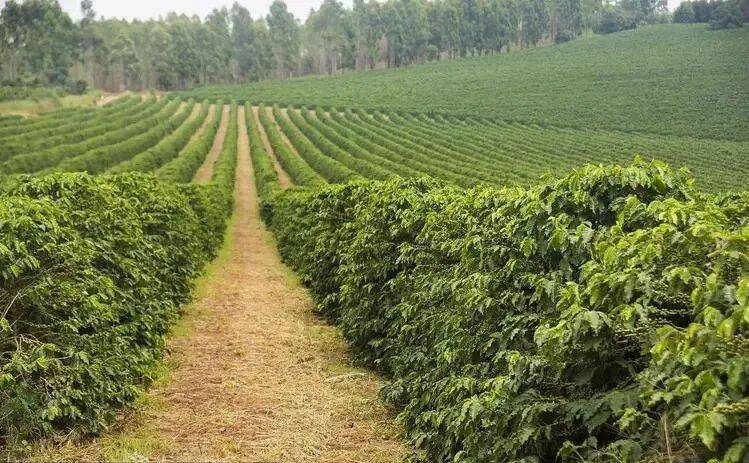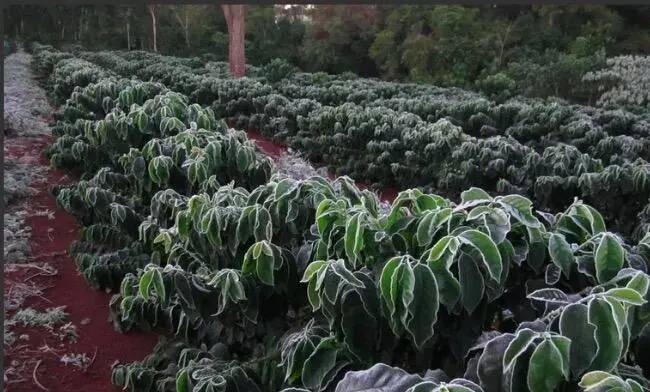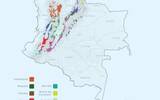Sales of coffee crops in Brazil start slowly in the new season because of fears that the future weather will affect yields
Recently, according to a report by consulting firm Safras&Mercado, Brazilian farmers began to harvest the new coffee season (2024ap25) about a month later, but the sales rate of coffee crops in the new season was slower than normal, Reuters reported.
As of March 12, Brazilian farmers had sold only 11 per cent of their coffee in the new season, compared with a historical average of 25 per cent during that period, Safras predicts. It is estimated that Arabica beans sales in the new season are 14 per cent, compared with 30 per cent in history, while Robusta beans sales are only 6 per cent, compared with an average of 15 per cent during this period.

According to industry insiders, the reduction in sales quota is mainly due to the high price of Robusta, which has led to a slowdown in the buying rate of local traders and exporters. In addition, the difference between direct purchase prices and forward delivery prices has prompted farmers to be more conservative, who are waiting on the sidelines and would rather wait longer to sell.
In addition, the consulting firm also said that another reason for the slow sales is the expected end of the El Ni ñ o climate model, which may lead to a more severe winter in Brazil in mid-2024. According to the latest weather forecast from the latest weather forecast of the Climate Forecast Center of the Meteorological Bureau, El Ni ñ o weather conditions are expected to end around April, but the effects of El Ni ñ o will last for some time, in addition, La Nina weather will occur in June-August and may last throughout the second half of the year.

Brazilian meteorology predicts that the return of La Nina phenomenon may reduce rainfall and cold weather in southeastern Brazil and increase rainfall and humidity in the northeast. The cold weather will cause a sharp drop in temperature in coffee-producing areas, which will bring frost disasters and damage coffee production in the current season and future seasons. Therefore, in order to ensure that there is something to sell, Brazilian farmers slow down the rate of selling coffee.
However, at present, the demand for coffee in the market is increasing, and Brazilian coffee exports are strong due to reduced production in Vietnam and Indonesia, two major producers of Robusta coffee, due to the lack of weather. Moreover, the market expects that the strong indication of Brazilian Robusta coffee exports will remain until the new production season in Indonesia from April to May, and whether future growth can be maintained depends on the performance of Vietnam in the new production season from October to January next year.
Important Notice :
前街咖啡 FrontStreet Coffee has moved to new addredd:
FrontStreet Coffee Address: 315,Donghua East Road,GuangZhou
Tel:020 38364473
- Prev

Colombian Coffee Bean | introduction to Rosa Coffee beans in Cymbidium producing area Boundary Manor
Colombian coffee is well known in the global coffee market. Colombia is the third largest coffee producer after Brazil and Vietnam and the largest exporter of Arabica coffee beans in the world. Because of its geographical and climatic conditions, Colombia can produce high-quality coffee. Colombian coffee
- Next

Starbucks X Disney? Netizen: don't expect it!
▲ Click to follow | Daily boutique Coffee Culture Magazine Coffee Workshop recently, netizens were overjoyed to hear that Starbucks would jointly sign a partnership with Disney in April. Prior to this, Starbucks launched Disney limited drinks and surrounding drinks in South Korea, Japan, Hong Kong and other places, which attracted domestic Starbucks fans.
Related
- What grade does Jamaica Blue Mountain No. 1 coffee belong to and how to drink it better? What is the highest grade of Blue Mountain coffee for coffee aristocrats?
- What are the flavor characteristics of the world-famous coffee Blue Mountain No. 1 Golden Mantelin? What are the characteristics of deep-roasted bitter coffee?
- Can I make coffee a second time in an Italian hand-brewed mocha pot? Why can't coffee be brewed several times like tea leaves?
- Hand-brewed coffee flows with a knife and a tornado. How to brew it? What is the proportion of grinding water and water temperature divided into?
- What is the difference between Indonesian Sumatra Mantinin coffee and gold Mantinin? How to distinguish between real and fake golden Mantelin coffee?
- What does bypass mean in coffee? Why can hand-brewed coffee and water make it better?
- Unexpected! Ruixing Telunsu lattes use a smoothie machine to foam milk?!
- % Arabia's first store in Henan opens into the village?! Netizen: Thought it was P's
- Does an authentic standard mocha coffee recipe use chocolate sauce or powder? Mocha Latte/Dirty Coffee/Salty Mocha Coffee Recipe Share!
- What is the difference between Vietnam egg coffee and Norway egg coffee? Hand-brewed single product coffee filter paper filter cloth filter flat solution!

